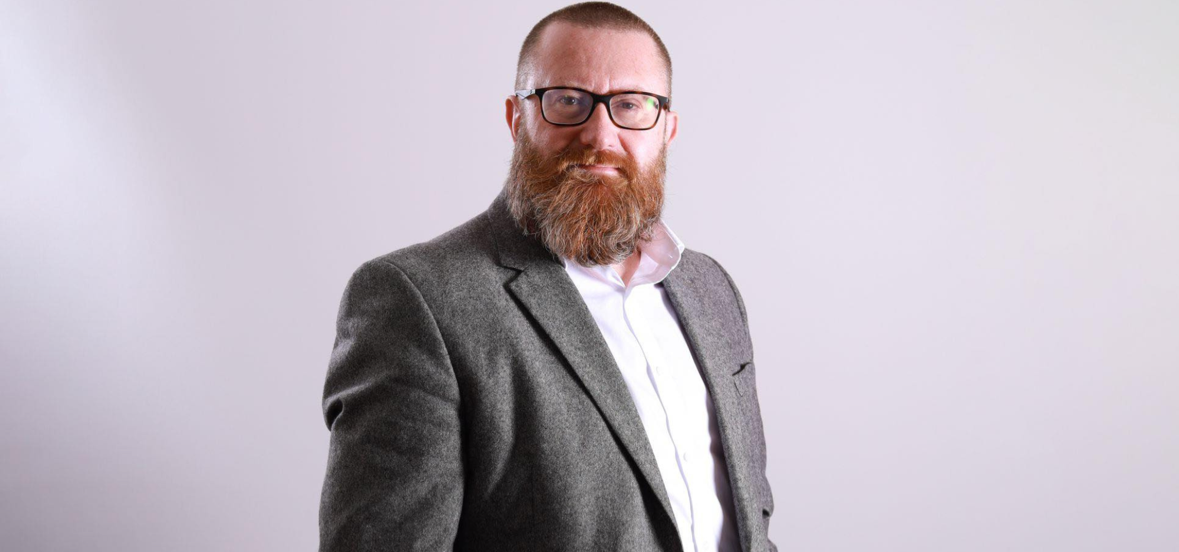Blog
Building emotional resilience: David’s top tips

This month to focus on the importance of emotional health and wellbeing, we sat down with our commercial director David Lovenbury to discuss his top tip for building emotional resilience, a person’s ability to adapt and cope with stressful or challenging situations, and to bounce back from adversity or setbacks.
David who now works as the commercial director of OptiMe has had a successful career in business, spanning several industries, and has learned a lot about emotional resilience along the way. To focus on the importance of emotional health and wellbeing this month, we sat down with David to discuss his top tips for building emotional resilience, as well as exploring some of the challenges he’s faced in his career and how he’s built up his resilience to overcome them.
What’s your top tip for building emotional resilience?
Practising acceptance. It took me nearly forty years to feel comfortable in my own skin and to become genuinely authentic.
- Practice self-reflection.
- Be kinder to yourself.
- Focus on your own personal strengths.
Could you tell me more about your journey to self acceptance?
From my early teenage years it was apparent I suffered from depression and anxiety and I often spent long periods of time in my bedroom listening to The Smiths or the John Peel radio show. I was very popular at school, had a lot of friends, and played lots of sports but I was often far more comfortable on my own, enjoying my own company. I entered the world of work aged just 17, on a youth training scheme, after abandoning my A-Levels and it was tough. I worked with older people, many degree-educated, and professionally qualified and I had to reinvent myself to cope with the alleged inferiority. I was completely out of my comfort zone but noticed I could make people laugh and I quickly became the court jester. It worked, I was hugely popular and spent three happy years in work before deciding to go to university to read Politics after completing my A-Levels in the evening and gaining an BTEC in Public Administration.
At University I continued to play the fool, I was three years older than my friends and they looked up to me in a surreal way, I had life experience and they did not. To be fair University was a blur, I was extremely depressed for long periods and drank a lot, I spent the final year mostly in my room, avoiding people, mainly my tutor and landlord. Fast forward a few months and I found myself in the recruitment industry and was totally out of my depth. Again, a further reinvention was necessary to both survive, then thrive. I did this for 26 years and managed to bluff my way through it. I am naturally quiet, reserved and humble but to survive in one of the toughest industries in the world I had to be something I’m not, a dude, a closer, a big mouth. It wasn’t until I left the recruitment space that I discovered who I was and what my strengths were and to fully embrace what made me unique.
How did you fully embrace yourself?
I began to focus on what made me a good person, what made me tick, I began to set myself modest rather than unachievable goals and I celebrated my successes and my quirks and idiosyncrasies. I started to plan ahead, to think more positively and to be much, much kinder to myself. I then started to get involved in other things, I became a charity Trustee, a Prince’s Trust mentor, occasional college lecturer and business owner! I have now re-entered the world of recruitment, but on my own terms, and it’s brilliant, I am far better at being me, than being Gordon Gecko in a Next suit and driving a Ford Focus. The self-reflection was amazing, I have now realised I am a popular and likeable person on merit, not by pretending I’m something I’m not.
In conclusion, David has shared some invaluable insights on how to build emotional resilience, which is a crucial skill for success in both personal and professional life. Some key takeaways from our conversation include the importance of self-acceptance, self-reflection, and focusing on your personal strengths. Additionally, thinking positively and being kinder to yourself can go a long way in developing emotional resilience. By practising these habits and taking care of our mental and emotional wellbeing, we can become more resilient in the face of challenges and setbacks, and ultimately achieve our goals with greater confidence and effectiveness. Thank you, David, for sharing your wisdom with us!
Emotional resilience is crucial for employees in today’s fast-paced and constantly changing work environment. High emotional resilience has also been linked to enhanced problem solving skills, reduced stress and improved teamwork skills. That’s why the OptiMe app provides employees with expert resources and workshops on building emotional resilience. Build a resilient organisation today and join our community of forward thinking HR professionals, get in touch at hello@optimewellbeing.com or book a free trial of the OptiMe app here.
« Back to All Posts
